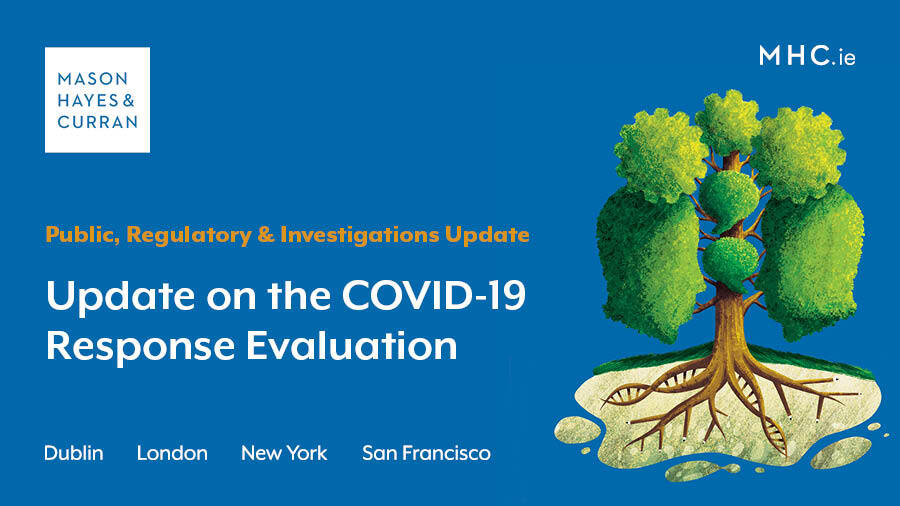Update on the COVID-19 Response Evaluation

The Government's COVID-19 response evaluation will assess pandemic management and extract key learnings, particularly for long-term residential care. Our Public, Regulatory and Investigations team outlines the essential steps for healthcare organisations preparing to engage.
The Government has announced terms of reference for a comprehensive evaluation of the response to the COVID-19 pandemic, covering the period 1 January 2020 to 28 February 2022. This evaluation aims to:
- Provide a factual account: Document the overall strategy and approach to planning and managing the pandemic in Ireland
- Identify lessons learned: Analyse the impact on the health and social care system and recommend improvements
- Guide future decision-making: Recommend guiding principles for responding to similar public health threats
Focus on long-term residential care
The evaluation will specifically examine the response to the pandemic in long-term residential care facilities for older persons, with a focus on identifying key learnings.
Evaluation process
Chaired by Professor Anne Scott, the evaluation panel will deliver its final report within 12-18 months. While participation appears to be voluntary, healthcare organisations, particularly those in long-term care, are encouraged to engage with the process.
Scope and exclusions
The evaluation will not delve into individual clinical decisions, vaccine efficacy, or adverse outcomes.
Preparing for the evaluation
Healthcare organisations, especially long-term residential care facilities for older persons, should begin preparing for potential involvement in the evaluation. Our Public, Regulatory and Investigations team can provide guidance and support in navigating this process.
We set out our top considerations that organisations should take account of when embarking on a healthcare investigation.
Download our Top 10 Considerations
Contact us to learn more about the key considerations and best practices for engaging with the evaluation.
The content of this article is provided for information purposes only and does not constitute legal or other advice.
Share this:





